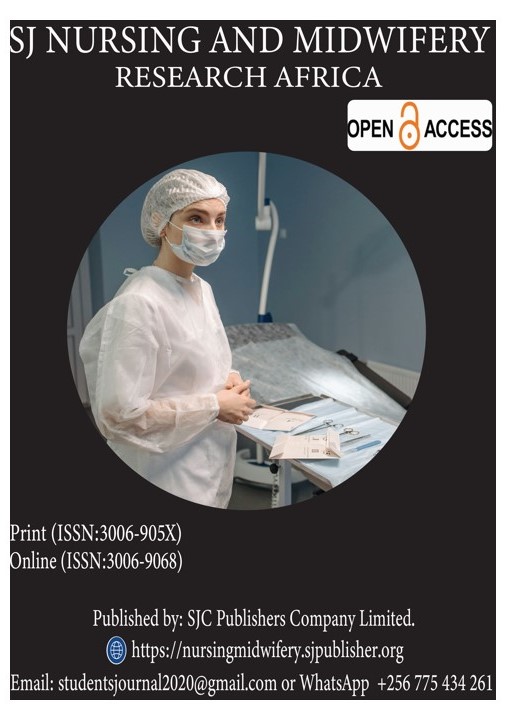EXPLORING CHALLENGES FACED BY HEALTH WORKERS DURING PREVENTION OF INFECTIOUS DISEASES AT KABALE REGIONAL REFERRAL HOSPITAL A CROSS-SECTIONAL STUDY.
DOI:
https://doi.org/10.51168/p814w005Keywords:
Challenges, Health Workers, Infection Prevention, Infectious DiseasesAbstract
Background
Infectious diseases continue to be a global public health concern, affecting millions of individuals each year. HCWs are still challenged while working to prevent contagious diseases, thus, this study seeks to identify the challenges faced by health workers during preventing infectious diseases in Kabale Regional Referral Hospital.
Methodology
Employing a cross-sectional study design, the research diligently collected data through structured questionnaires distributed among 29 participants, resulting in an impressive 96.7% response rate.
Results
(75.9%) of HCWs possess a minimum of a nursing certificate, and a significant majority (86.2%) are enrolled nurses, 82.8% of respondents encountered obstacles in their IPC endeavors.
Among the identified challenges, limited access to personal protective equipment (44.8%) emerges as a predominant issue, accompanied by concerns such as inadequate training programs (13.8%) and suboptimal adherence to established protocols (31%). Despite HCWs exhibiting commendable knowledge (86.2%) and practices in infectious disease prevention, the study underscores critical challenges, including insufficient resources, infrastructure limitations, and perceived inadequacies in leadership effectiveness, with 37.9% of respondents expressing dissatisfaction with the hospital's leadership in addressing infectious disease prevention challenges.
Conclusion
The prevalence of challenges in Infection Prevention and Control (IPC) is evident, with more than half of respondents acknowledging the presence of obstacles. Key challenges identified include inadequate training programs, limited access to personal protective equipment (PPE), poor adherence to established protocols, and insufficient awareness about infectious diseases.
Recommendation
Hospitals should prioritize ensuring a consistent supply of PPE and enhance accessibility to handwashing facilities and sanitizers.
Communication channels regarding IPC guidelines should be strengthened through regular updates, training sessions, and feedback mechanisms.
Leadership training programs are also needed to engage with healthcare workers, address concerns, and foster a collaborative approach to overcoming challenges in infectious disease prevention.
Downloads
Published
Issue
Section
License
Copyright (c) 2024 CHARITY ASIIMWE, Sr. Patience Ddumba (Author)

This work is licensed under a Creative Commons Attribution-NonCommercial-NoDerivatives 4.0 International License.




